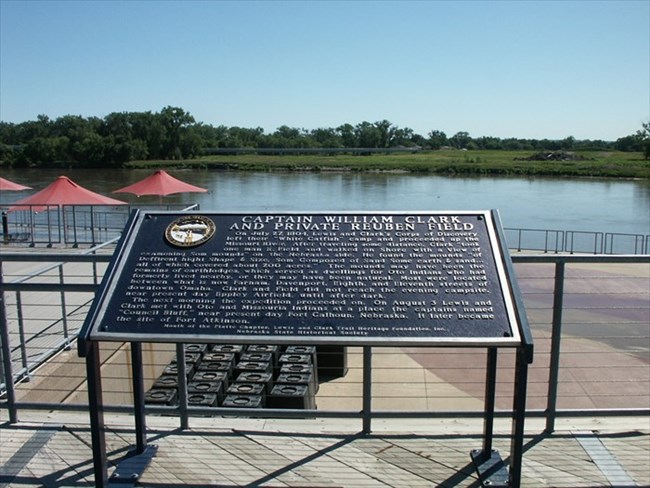Last updated: December 30, 2019
Article
Reuben and Joseph Field

Creative Commons
While wintering at Camp River Dubois, Reuben was one of several soldiers who didn’t always respect the authority of the sergeants left in charge of the camp while the Captains were away. When Reuben refused to serve on guard duty one evening, he was rebuked by Captain Lewis, but got off without severe punishment.
The Captains quickly discovered that Reuben was one of the most valuable men in the Expedition – he was an excellent woodsman and hunter, knew how to scout, and was loyal and trustworthy. Reuben, along with his brother and George Drouillard, accompanied Captain Lewis on the side-exploration of the Marias River in July 1806. Traveling north from the Great Falls, they continued upstream toward the eastern foothills of the Rocky Mountains, crossing today’s Blackfeet Reservation. It was here, the most northerly point of the journey, that Lewis named the area “Camp Disappointment.” It was the very next day when the skirmish with the small party of Blackfeet took place in which two young Indians perished.
Lewis, in his post-Expedition notes, was often conservative with his praise about most of the men. But regarding both Reuben and Joseph, he wrote, “Two of the most active and enterprising young men who accompanied us. It was their peculiar fate to have been engaged in all the most dangerous and difficult scenes of the voyage, in which they uniformly acquited themselves with much honor.”
After their return to St. Louis, it's speculated that both brothers joined the 1807 civilian group of Chouteau fur traders who worked up and down the Missouri River. After Joseph died (causes not clearly known), Reuben chose to remain close to St. Louis and tried to re-enlist in the army. However, no positions were available at the time.
The following year, he married Mary Myrtle in Indiana – but there were rumors that the frontier minister wasn’t the man he claimed he was. Reuben died in 1823 and in his will he clarified that he considered his marriage to Mary “legal,” in spite of the questionable minister. Just prior to his death, the couple had returned to Jefferson County, Kentucky. His exact burial site in unknown, but some think he may be interned in an unmarked grave in Bethany Memorial Cemetery in Valley Station, Kentucky.
This wayside marker stands just south of the Lewis and Clark National Historic Trail headquarters in Omaha, along the Missouri River. It recognizes that on July 27, 1804, Captain Clark and Private Reuben Field came to shore to investigate the large mounds of the area, today the site of downtown Omaha.
Sources: The Journals of Lewis and Clark, “Joined by a Journey,” by Mike Crosby, PBS Lewis and Clark website, and US Army Lewis and Clark website
